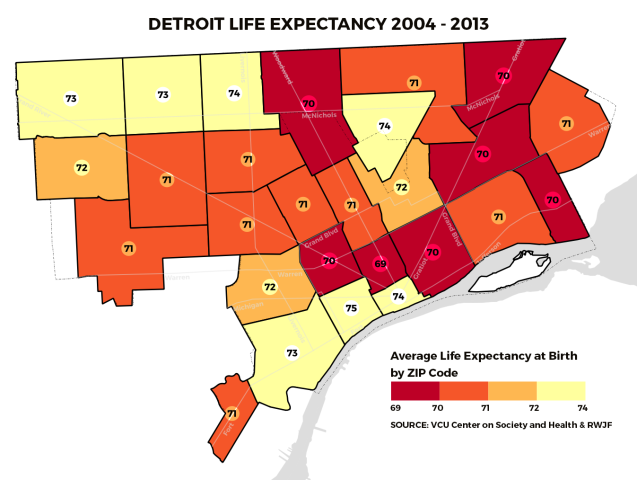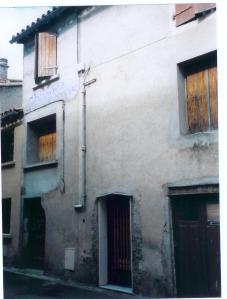 What We Fail To Do. 42 For I was hungry and you gave me no food, I was thirsty and you gave me no drink, 43 a stranger and you gave me no welcome, naked and you gave me no clothing, ill and in prison, and you did not care for me.’ 44 Then they will answer and say, ‘Lord, when did we see you hungry or thirsty or a stranger or naked or ill or in prison, and not minister to your needs?’ 45 He will answer them, ‘Amen, I say to you, what you did not do for one of these least ones, you did not do for me.’ The exchange between the king and the accursed mirrors the exchange with the righteous, though suitably abbreviated to avoid tedious repetition – even absenting “brothers and sisters” with reference to the “least ones” in v. 45. The list is the same, the perplexed “when did we see you” response, and the King’s reply. One contrast might lie in something small. In v.44, summarizing the actions of the accursed, they ask when they did “not minister to your needs?”
What We Fail To Do. 42 For I was hungry and you gave me no food, I was thirsty and you gave me no drink, 43 a stranger and you gave me no welcome, naked and you gave me no clothing, ill and in prison, and you did not care for me.’ 44 Then they will answer and say, ‘Lord, when did we see you hungry or thirsty or a stranger or naked or ill or in prison, and not minister to your needs?’ 45 He will answer them, ‘Amen, I say to you, what you did not do for one of these least ones, you did not do for me.’ The exchange between the king and the accursed mirrors the exchange with the righteous, though suitably abbreviated to avoid tedious repetition – even absenting “brothers and sisters” with reference to the “least ones” in v. 45. The list is the same, the perplexed “when did we see you” response, and the King’s reply. One contrast might lie in something small. In v.44, summarizing the actions of the accursed, they ask when they did “not minister to your needs?”
In the language of the NT one would expect to find the work/root diakoneō – from which we take the modern word “deacon.” It is a word that is used in Matthew (4:11; 8:15; 27:55, 20:26; 23:11) to describe the unselfish care for others which marks true discipleship. The fault of the “accursed” is not so much that they have done wrong but that they have failed to do what is commanded of them. It echoes the parable of the bridesmaids (vv. 1–12) and the servants (vv. 24–27).
The Eternal. 46 And these will go off to eternal punishment, but the righteous to eternal life.” There are only two possible outcomes to the judgment. The phrase “eternal life” is already familiar to us from 19:16, 29 (cf. also 7:14; 18:8, 9) where it has been seen to be synonymous with being saved or with entering the kingdom of heaven. This is, however, the only time we meet the phrase “eternal punishment” in Matthew, or indeed in the whole NT. It appears to be synonymous with the “eternal fire” of v. 41 and of 18:8, and cf. the “fiery Gehenna” of 5:22 and 18:9.
All these passages raise the question whether this fire is regarded as destroying and thus annihilating those consigned to it, or as a continuing agony of conscious punishment such as is explicitly attributed to the devil, the beast and the false prophet in the lake of fire in Rev 20:10. In the debate among evangelical theologians on the issue of annihilation as against continuing punishment, the phrase “eternal punishment” here in Matt 25:46 is commonly cited as a proof-text for the latter position. But this is usually on the assumption that “eternal” is a synonym for “everlasting.” That assumption depends more on modern English usage than on the meaning of aiōnios, which we have seen to be related to the concept of the two ages. “Eternal punishment”, so understood, is punishment that relates to the age to come rather than punishment that continues forever, so that the term does not in itself favor one side or the other in the annihilationist debate. In so far as the metaphor of fire may be pressed, however, it suggests destruction rather than punishment, especially if the imagery of the incineration of rubbish is understood to underlie the idea of hell (Gehenna was originally the dump site for Jerusalem where the city’s garbage was burned – and as you can imagine for a city such as Jerusalem – the fires were 24/7 and smoldered incessantly.) The fire of Gehenna goes on burning not because the rubbish is not destroyed by it, but because more is continually added. The imagery of incineration in relation to the final destiny of the wicked also occurs more explicitly in 13:42: the weeds are destroyed, not kept burning forever. We have noted also the use of the verb “destroy” in relation to hell in 10:28. These pointers suggest that an annihilationist theology (sometimes described as “conditional immortality”) does more justice to Matthew’s language in general, and if so the sense of “eternal punishment” here will not be “punishment which goes on for ever” but “punishment which has eternal consequences”, the loss of eternal life through being destroyed by fire.
Advertisements Share this:




